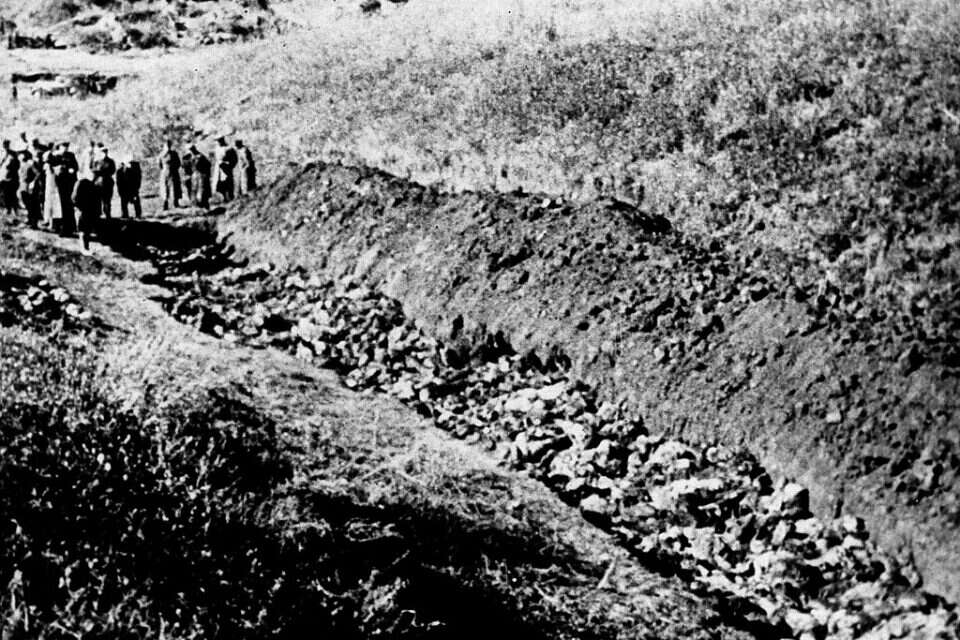Time and time again, trips to Poland rise to the public discourse, sometimes because of their freezing and renewal, and sometimes because of the calls to stop them.
But the problem in my opinion is quite different: travel to Poland is the only option available.
In the multicultural Israel of 2021, the story of the memory of the Holocaust must be expanded and the story of Soviet Jewry must be added to it. I did not go to Poland, I preferred to go on a delegation to the United States, but I remember my adolescence mostly mixed with shame in my heritage. I grew up deep in the Russian closet. For almost twenty years I wanted nothing to do with the Russian language, culture or anything that had the slightest hint of home I came from. Ever since I was laughed at in compulsory kindergarten, I have moved away. For example, I did not want to hear about my family history. When my dad tried to tell me that Grandpa was a "veteran", or the other grandpa survived the "Gulag" or Grandma was in an "evacuation", I did not listen because it did not connect to words like "Holocaust" and "extermination camps" I learned in school. I did not think it was Israeli enough.
The first time I felt a connection to my roots was after I was discharged from the IDF and my parents dragged me on a first visit to my hometown of Chernivtsi in Ukraine. It was a kind of condition to travel later to Central America. In the ghetto, one long, unpaved street, with old and spacious country houses, in the traditional Jewish building style, I felt like I was entering a period film - and I began to be occupied.
There I first learned about my grandmother's history. I learned that 2.7 million Jews perished on Soviet soil, almost half of the six million. That most of the Jews who survived in the Soviet Union, survived because they fled deep into its territory (the same "evacuation", civil evacuation). The vast majority of those who remained when the Germans entered - were exterminated, and this was a completely different extermination than what we usually learned in schools. The Germans would enter the village, gather all the Jews in a nearby valley, and slaughter them all or set them on fire in a local barn, with the help of local collaborators. Hundreds of Jewish villages in Ukraine, Russia and Belarus have been wiped out. I learned that there was a ghetto in Shargorod, because in the Transnistria area - perhaps the only area in the Soviet Union where Jews survived the Holocaust - the Romanians ruled, and although the Jews died of starvation and disease, many survived. The fact that I could actually see the house where my grandmother grew up, made me feel something for the first time. It's mine, I'm from here.
When we arrived at the Jewish cemetery, my journey of discovery continued. My father decided to find the grave of my grandmother's sister, who died in the ghetto. Shragorod Cemetery, like many cemeteries in Ukraine, is badly neglected. Thousands of stone slabs, some shattered or lying on the ground and around wild vegetation. No one cares to weed the vegetation and after every winter a forest grows up between the tombstones. My dad only had an old black and white picture and a general guide that the tomb was near a main path. There were no more paths or directions in the cemetery, but I was given a task, and the officer inside me decided she was going to find this grave - whatever. For hours we wandered under the blazing sun. My mom is complaining, my dad already wants to go back to town and I'm not willing to give up. Eventually, I found him. A tomb with a single pillar painted blue with a Star of David with the inscription "Feige Bat Baruch Leib Schneider 1942-1920". And even after almost 12 years, I remember in my bones the feeling I felt then - of connection, of belonging, of home. I knew my grandmother,Who passed away a year ago and we just found her sister's grave, was proud of me. And that was the first moment I was proud too. In my roots, in my story.
Bringing all Israeli students to Poland is simply a huge miss, especially given the situation in which the "Polish tour industry" has rolled in today: expensive tours, which have become robotic and emotionless.
True, in Ukraine and Russia there are no extermination camps.
There are no stockpiles of shoes or glasses, but there are personal stories.
Traveling through green hills, beneath which hundreds of thousands of people were buried, there is a possibility for the great-grandchildren of those survivors and murdered to search for their personal story.
Allow them a one-time discovery and connection to their family story.
This is the only way to teach the memory of the Holocaust in 2021 - to embark on an exploratory journey that asks questions, instead of getting ready-made answers, which, let's face it, contain only a partial answer to this day.

